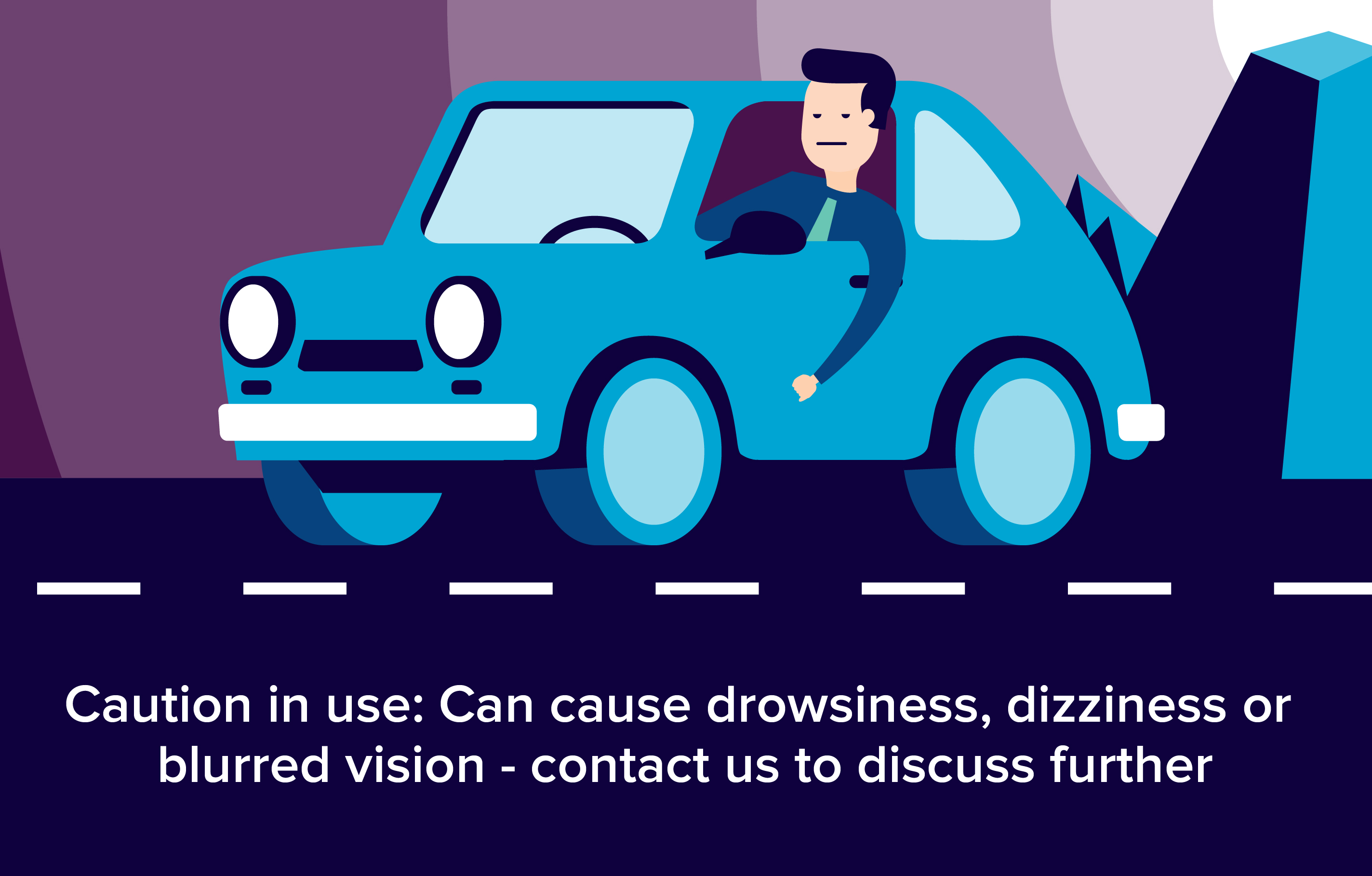Levemir is indicated for treatment of diabetes mellitus in adults, adolescents and children aged 1 year and above.

What is Levemir?
Levemir (insulin detemir) is a man-made form of insulin, a hormone that is produced in the body. Insulin works by lowering levels of glucose (sugar) in the blood. Insulin detemir is a long-acting insulin that starts to work several hours after injection and keeps working evenly for 24 hours.
- Levemir is used to improve blood sugar control in adults and children with diabetes mellitus.
- Levemir is used to treat type 2 diabetes in adults.
- Levemir is also used to treat type 1 diabetes in adults and children who are at least 2 years old.
Important information
You should not use Levemir if you are allergic to insulin detemir, or if you are in a state of diabetic ketoacidosis (call your doctor for treatment with a short-acting insulin).
Never share a Levemir injection pen or syringe with another person, even if the needle has been changed.
Many other drugs can potentially interfere with the effects of Levemir. It is extremely important that you tell your doctor about all the prescription and over-the-counter medications you use. This includes prescription, over-the-counter, vitamin, and herbal products. Do not start a new medication without telling your doctor.
Low blood sugar (hypoglycemia) can occur if you skip a meal, exercise too long, drink alcohol, or are under stress. An insulin overdose can cause life-threatening hypoglycemia. Know the signs of low blood sugar (hypoglycemia) and how to recognize them: headache, hunger, weakness, sweating, tremors, irritability, or trouble concentrating. Be sure your family and close friends know how to help you in an emergency.
Before taking this medicine
You should not use Levemir if you are allergic to insulin detemir, or if you are having an episode of hypoglycemia (low blood sugar).
Levemir should not be given to a child younger than 2 years old. Levemir should not be used to treat type 2 diabetes in a child of any age.
To make sure Levemir is safe for you, tell your doctor if you have:
- liver or kidney disease;
- low levels of potassium in your blood (hypokalemia); or
- diabetic ketoacidosis (call your doctor for treatment).
Tell your doctor if you also take pioglitazone or rosiglitazone (sometimes contained in combinations with glimepiride or metformin). Taking certain oral diabetes medicines while you are using Levemir may increase your risk of serious heart problems.
Follow your doctor's instructions about using Levemir if you are pregnant or breast-feeding a baby. Blood sugar control is very important during pregnancy, and your dose needs may be different during each trimester of pregnancy. Your dose needs may also be different while you are breast-feeding.
Ask your doctor about using Levemir if you are breast-feeding a baby. Your dose needs may be different while you are nursing.
How should I use Levemir?
- Use Levemir exactly as prescribed by your doctor. Follow all directions on your prescription label. Do not use this medicine in larger or smaller amounts or for longer than recommended.
- Levemir is injected under the skin. You will be shown how to use injections at home. Do not give yourself this medicine if you do not understand how to use the injection and properly dispose of used needles and syringes.
- If you use Levemir once daily, use the injection at your evening meal or at bedtime. If you use the medicine twice daily, use your evening dose at least 12 hours after your morning dose.
- Your care provider will show you the best places on your body to inject Levemir. Use a different place each time you give an injection. Do not inject into the same place two times in a row.
- Your doctor may want you to use a short-acting insulin in addition to Levemir. Always inject your insulins separately. Levemir must not be given with an insulin pump, or mixed with other insulins. Do not inject Levemir into a vein or a muscle
- If you use an injection pen, use only the injection pen that comes with Levemir. Attach a new needle before each use. Do not transfer the insulin from the pen into a syringe.
- Never share an injection pen or syringe with another person, even if the needle has been changed. Sharing these devices can allow infections or disease to pass from one person to another.
- Use a disposable needle and syringe only once. Follow any state or local laws about throwing away used needles and syringes. Use a puncture-proof "sharps" disposal container (ask your pharmacist where to get one and how to throw it away). Keep this container out of the reach of children and pets.
- Low blood sugar (hypoglycemia) can happen to everyone who has diabetes. Symptoms include headache, hunger, sweating, irritability, dizziness, nausea, fast heart rate, and feeling anxious or shaky. To quickly treat low blood sugar, always keep a fast-acting source of sugar with you such as fruit juice, hard candy, crackers, raisins, or non-diet soda.
- Your doctor can prescribe a glucagon emergency injection kit to use in case you have severe hypoglycemia and cannot eat or drink. Be sure your family and close friends know how to give you this injection in an emergency.
- Also watch for signs of high blood sugar (hyperglycemia) such as increased thirst or urination, blurred vision, headache, and tiredness.
Blood sugar levels can be affected by stress, illness, surgery, exercise, alcohol use, or skipping meals. Ask your doctor before changing your insulin dose or schedule.
Levemir is only part of a complete treatment program that may also include diet, exercise, weight control, regular blood sugar testing, and special medical care. Follow your doctor's instructions very closely.
Keep Levemir in its original container protected from heat and light. Do not draw insulin from a vial into a syringe until you are ready to give an injection. Do not freeze insulin or store it near the cooling element in a refrigerator. Throw away any insulin that has been frozen.
Storing unopened (not in use) Levemir:
- Refrigerate and use until expiration date; or
- Store at room temperature and use within 42 days.
Storing opened (in use) Levemir:
- Store the vial in a refrigerator or at room temperature and use within 42 days.
- Store the injection pen at room temperature (do not refrigerate) and use within 42 days. Do not store the injection pen with a needle attached.
Do not use the medicine if it looks cloudy or has changed colors. Call your pharmacist for new medicine.
Read all patient information, medication guides, and instruction sheets provided to you. Ask your doctor or pharmacist if you have any questions.
Wear a diabetes medical alert tag in case of emergency. Any medical care provider who treats you should know that you have diabetes.
Levemir dosing information
Usual Adult Dose of Levemir for Diabetes Type 1:
Dose should be individualized based on clinical response; this basal insulin should be used in regimens with short-acting insulin
Initial dose: One-third the total daily insulin requirement subcutaneously once a day or in divided doses twice a day. Once daily dosing should be administered with the evening meal or at bedtime; twice daily dosing should be given morning and evening; the evening dose may be given with dinner, at bedtime, or 12 hours after the morning dose
Maintenance dose: Adjust according to metabolic needs, blood glucose measurements, and glycemic goals
Conversion from Other Insulin Therapies: Insulin glargine and NPH insulin can be converted on a unit to unit basis; closely monitor blood glucose during the transition and in the initial weeks thereafter, the dose and frequency of short-acting insulin may need to be adjusted.
Comments:
- The initial total daily insulin requirement in insulin naive patients is generally 0.2 to 0.4 units of insulin per kilogram of body weight.
Use: To improve glycemic control in patients with type 1 diabetes mellitus.
Usual Adult Dose of Levemir for Diabetes Type 2:
Dose should be individualized based on clinical response
- Insulin-naive: Initial dose: 10 units (or 0.1 to 0.2 units/kg) subcutaneously once a day or in divided doses twice a day
- For patients inadequately controlled on a GLP-1 receptor agonist: Initial dose: 10 units subcutaneously once a day
- Maintenance dose: Adjust according to metabolic needs, blood glucose measurements, and glycemic goals
Conversion from Other Insulin Therapies: Insulin glargine and NPH insulin can be converted on a unit to unit basis; however, some patients may require more insulin detemir than NPH insulin.
Comments:
- Once daily dosing should be administered with the evening meal or at bedtime; twice daily dosing should be given morning and evening; the evening dose may be given with dinner, at bedtime, or 12 hours after the morning dose.
- When changing treatment regimens, the dose and frequency of short-acting insulins and/or doses of any other anti-diabetic drugs may need to be adjusted.
- Closely monitor blood glucose during periods of transition and in the initial weeks thereafter.
Use: To improve glycemic control in patients with type 2 diabetes mellitus.
Usual Pediatric Dose of Levemir for Diabetes Type 1:
Age: 2 years or older:
- Dose should be individualized based on clinical response; this basal insulin should be used in regimens with short-acting insulin
Initial dose: One-third the total daily insulin requirement subcutaneously once a day or in divided doses twice a day
- Once daily dosing should be administered with the evening meal or at bedtime; twice daily dosing should be given morning and evening; the evening dose may be given with dinner, at bedtime, or 12 hours after the morning dose
Maintenance dose: Adjust according to metabolic needs, blood glucose measurements, and glycemic goals
Conversion from Other Insulin Therapies: Insulin glargine and NPH insulin can be converted on a unit to unit basis; closely monitor blood glucose during the transition and in the initial weeks thereafter, the dose and frequency of short-acting insulin may need to be adjusted.
Comments:
- The initial total daily insulin requirement in insulin naive patients is generally 0.2 to 0.4 units of insulin per kilogram of body weight.
Use: To improve glycemic control in pediatric patients 2 years or older with type 1 diabetes mellitus.
What happens if I miss a dose?
- Call your doctor for instructions if you miss a dose of Levemir. Keep insulin on hand at all times. Get your prescription refilled before you run out of medicine completely.
What happens if I overdose?
- Seek emergency medical attention. Insulin overdose can cause life-threatening hypoglycemia. Symptoms include drowsiness, confusion, blurred vision, numbness or tingling in your mouth, trouble speaking, muscle weakness, clumsy or jerky movements, seizure (convulsions), or loss of consciousness.
What should I avoid while using Levemir?
- Insulin can cause low blood sugar. Avoid driving or operating machinery until you know how this medicine will affect you.
- Avoid medication errors by always checking the medicine label before injecting your insulin.
- Avoid drinking alcohol. It can cause low blood sugar and may interfere with your diabetes treatment.
Levemir side effects
Get emergency medical help if you have signs of insulin allergy to Levemir: redness or swelling where an injection was given, itchy skin rash over the entire body, trouble breathing, fast heartbeats, feeling like you might pass out, or swelling in your tongue or throat.
Call your doctor at once if you have:
- fluid retention - weight gain, swelling in your hands or feet, feeling short of breath; or
- low potassium - leg cramps, constipation, irregular heartbeats, fluttering in your chest, increased thirst or urination, numbness or tingling, muscle weakness or limp feeling.
Common Levemir side effects may include:
- low blood sugar;
- itching, mild skin rash; or
- thickening or hollowing of the skin where you injected the medicine.
What other drugs will affect Levemir?
Many other medicines can affect your blood sugar, and some medicines can increase or decrease the effects of insulin. Some drugs can also cause you to have fewer symptoms of hypoglycemia, making it harder to tell when your blood sugar is low. Tell each of your health care providers about all medicines you use now and any medicine you start or stop using. This includes prescription and over-the-counter medicines, vitamins, and herbal products.
Side effects
Common side effects of Levemir include: severe hypoglycemia.
Applies to insulin detemir: subcutaneous solution
Along with its needed effects, insulin detemir (the active ingredient contained in Levemir) may cause some unwanted effects. Although not all of these side effects may occur, if they do occur they may need medical attention.
Check with your doctor immediately if any of the following side effects occur while taking insulin detemir:
Incidence not known
- Anxiety
- blurred vision
- chills
- cold sweats
- confusion
- cool, pale skin
- cough
- depression
- difficulty swallowing
- dizziness
- fast heartbeat
- fever
- headache
- hives
- hoarseness
- increased hunger
- irritation
- itching
- joint pain
- nausea
- nightmares
- puffiness or swelling of the eyelids or around the eyes, face, lips, or tongue
- redness of the skin
- seizures
- shakiness
- skin rash
- slurred speech
- stiffness or swelling
- swelling of the eyelids, face, lips, hands, or feet
- tightness in the chest
- trouble breathing
- unusual tiredness or weakness
Some side effects of insulin detemir may occur that usually do not need medical attention. These side effects may go away during treatment as your body adjusts to the medicine. Also, your health care professional may be able to tell you about ways to prevent or reduce some of these side effects. Check with your health care professional if any of the following side effects continue or are bothersome or if you have any questions about them:
Incidence not known
- Bleeding, blistering, burning, coldness, discoloration of the skin, feeling of pressure, hives, infection, inflammation, itching, lumps, numbness, pain, rash, redness, scarring, soreness, stinging, swelling, tenderness, tingling, ulceration, or warmth at the injection site
- decrease in the amount of urine
- noisy, rattling breathing
- redistribution or accumulation of body fat
- swelling of the fingers, hands, feet, or lower legs
- trouble breathing at rest
- weight gain
Dosing
- LEVEMIR is a recombinant human insulin analog for once- or twice-daily subcutaneous administration.
- Patients treated with LEVEMIR once-daily should administer the dose with the evening meal or at bedtime.
- Patients who require twice-daily dosing can administer the evening dose with the evening meal, at bedtime, or 12 hours after the morning dose.
- The dose of LEVEMIR must be individualized based on clinical response. Blood glucose monitoring is essential in all patients receiving insulin therapy.
- Patients adjusting the amount or timing of dosing with LEVEMIR should only do so under medical supervision with appropriate glucose monitoring [see Warnings and Precautions (5.2)].
- In patients with type 1 diabetes, LEVEMIR must be used in a regimen with rapid-acting or short-acting insulin.
- As with all insulins, injection sites should be rotated within the same region (abdomen, thigh, or deltoid) from one injection to the next to reduce the risk of lipodystrophy [see Adverse Reactions (6.1)].
- LEVEMIR can be injected subcutaneously in the thigh, abdominal wall, or upper arm. As with all insulins, the rate of absorption, and consequently the onset and duration of action, may be affected by exercise and other variables, such as stress, intercurrent illness, or changes in co-administered medications or meal patterns.
- When using LEVEMIR with a glucagon-like peptide (GLP)-1 receptor agonist, administer as separate injections. Never mix. It is acceptable to inject LEVEMIR and a GLP-1 receptor agonist in the same body region but the injections should not be adjacent to each other.
Initiation of LEVEMIR Therapy
The recommended starting dose of LEVEMIR in patients with type 1 diabetes should be approximately one-third of the total daily insulin requirements. Rapid-acting or short-acting, pre-meal insulin should be used to satisfy the remainder of the daily insulin requirements.
The recommended starting dose of LEVEMIR in patients with type 2 diabetes inadequately controlled on oral antidiabetic medications is 10 Units (or 0.1-0.2 Units/kg) given once daily in the evening or divided into a twice daily regimen.
The recommended starting dose of LEVEMIR in patients with type 2 diabetes inadequately controlled on a GLP-1 receptor agonist is 10 Units given once daily in the evening.
LEVEMIR doses should subsequently be adjusted based on blood glucose measurements. The dosages of LEVEMIR should be individualized under the supervision of a healthcare provider.
Converting to LEVEMIR from Other Insulin Therapies
- If converting from insulin glargine to LEVEMIR, the change can be done on a unit-to-unit basis.
- If converting from NPH insulin, the change can be done on a unit-to-unit basis. However, some patients with type 2 diabetes may require more LEVEMIR than NPH insulin, as observed in one trial [see Clinical Studies (14)].
- As with all insulins, close glucose monitoring is recommended during the transition and in the initial weeks thereafter. Doses and timing of concurrent rapid-acting or short-acting insulins or other concomitant antidiabetic treatment may need to be adjusted.
References:
https://www.levemir.com
https://www.levemir.com/starting-levemir/levemir-flextouch.html
http://www.medicines.ie/medicine/7610/SPC/Levemir+Penfill%2C+Levemir+FlexPen%2C+Levemir+Innolet/
http://www.medicines.ie/medicine/11537/XPIL/Levemir+FlexPen+(Insulin+detemir)+100+units+ml+solution+for+injection+in+pre-filled+pen
https://www.levemirpro.com/resources/video-library/levemir-flexpen-demonstration.html
http://www.novonordisk.com.au/content/dam/australia/affiliate/www-novonordisk-au/Patients/Documents/LevFpcmi10.pdf
https://www.drugs.com/drug-interactions/insulin-detemir,levemir.html



